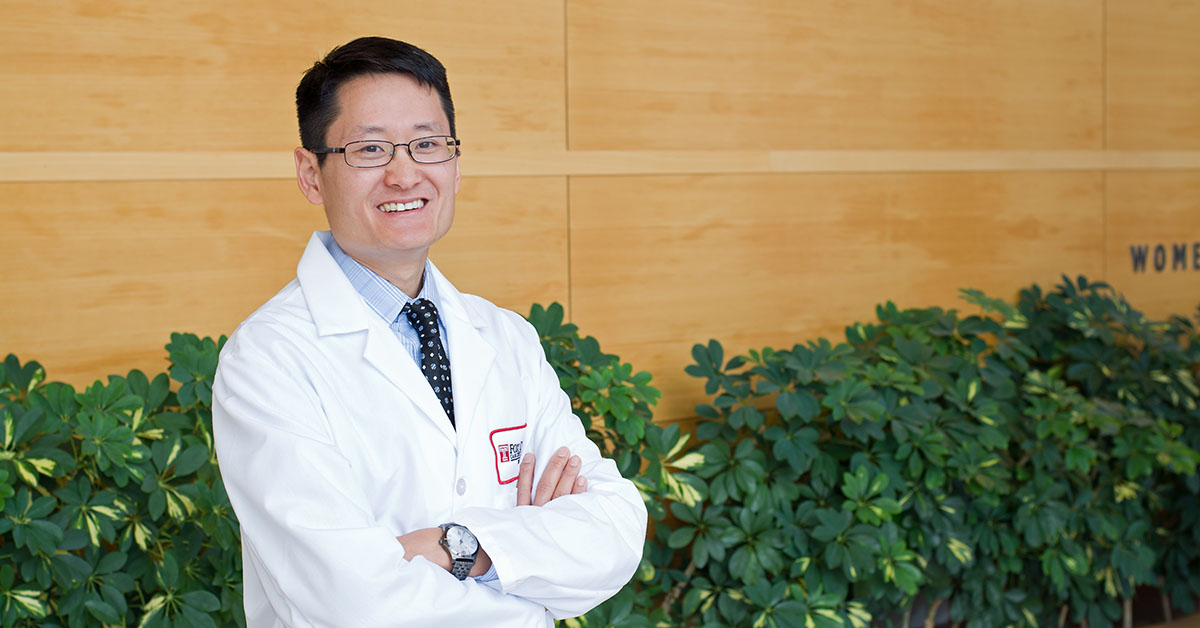
PHILADELPHIA (April 28, 2022)—Researchers at Fox Chase Cancer Center and Temple University Hospital will participate in a $3 million multisite study on the use of telehealth for lymphedema management in head and neck cancer survivors.
“Patients with head and neck cancer treated with radiation alone or in combination with surgery sometimes develop a side effect called lymphedema after treatment,” said Jeffrey C. Liu, MD, FACS, an associate professor in the Department of Surgical Oncology at Fox Chase, director of Head and Neck Oncologic Surgery at Temple University Hospital and associate professor of Otolaryngology – Head and Neck Surgery at the Lewis Katz School of Medicine at Temple University.
“The radiation destroys the natural draining of the lymphatic system, and this damage and the resulting scar tissue can lead to a buildup of fluid that doesn’t drain,” he added.
Patients with lymphedema may have a swollen jaw or neck and can experience a great deal of discomfort and pain. The lymphedema can limit head movement and alter physical appearance, Liu said.
Lymphedema can be effectively treated with complete decongestive therapy (CDT). With CDT, a patient sees a certified lymphedema therapist who can help to massage the damaged tissue—either with their hands or a device—to move the buildup of fluid and reduce swelling. The therapist can also teach the patient techniques to do at home.
A similar technique is frequently used for extremities in other conditions like breast cancer, but treatment of lymphedema of the head and neck requires specialized knowledge and training by lymphedema therapists.
The funding award from the Patient-Centered Outcomes Research Institute was also awarded to researchers at the Perelman School of Medicine at the University of Pennsylvania; the study will also include researchers from Jefferson Health.
They will conduct a randomized clinical trial comparing two ways to administer lymphedema therapy to survivors of head and neck cancer. Patients will be assigned to either the standard clinic-based lymphedema therapy or a hybrid home-based lymphedema therapy initiated after an on-site evaluation and setup.
“The problem with this specialized therapy is that it involves a lot of appointments, which can be demanding on a patient who has just completed cancer therapy. We are trying to reduce the burden of treatment by exploring if lymphedema therapy can be delivered just as effectively using telehealth and a hybrid platform,” Liu said.
“We will be looking at the physical reduction of the lymphedema and several patient-reported outcomes like symptom relief,” he added.
If the hybrid model is as effective or more effective than the clinic-based model, this will help guide ways to provide this specialized care to a greater number of patients, especially those who don’t live near sites where such therapy is available.
“Lymphedema therapy is a specialized and effective therapy in the survivorship space that can help patients reduce their symptom burden after their head and cancer treatment,” Liu said. “We hope to be able to help more patients by expanding the radius of access, but want to ensure it works just as well or better than clinic-based therapy.”